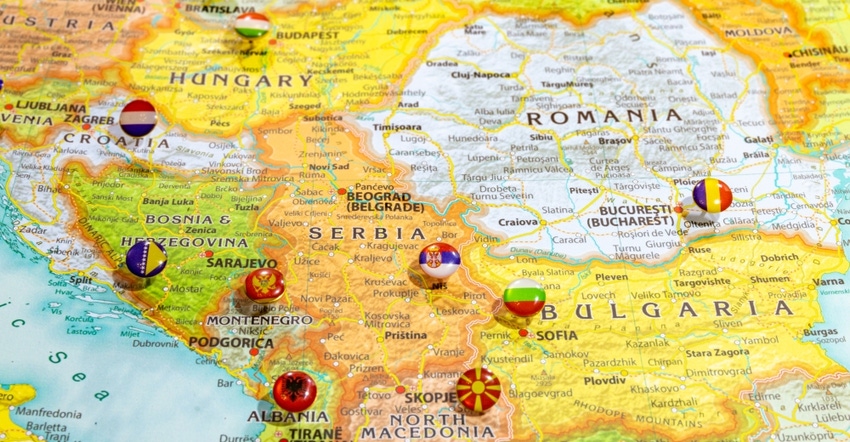The Organic Development of the Self-Storage Industry in Southeast Europe
There are more than a dozen countries in Southeast Europe and none of them has more than a handful of self-storage facilities. Still, the industry is growing in the region. Read about the operations in the region, what’s driving demand, the common marketing approach and more.

Southeast Europe includes more than a dozen countries. They are Albania, Bosnia and Herzegovina, Croatia, Cyprus, Greece, Kosovo, Moldova, Montenegro, North Macedonia, Romania, Serbia, Slovenia, and Turkey. The largest cities in these countries are Athens, Belgrade, Bucharest, Istanbul and Sofia.
In this part of the world, the self-storage concept is primarily known from reality-TV shows featuring industry auctions. However, the business has slowly and steadily been gaining momentum. At the time of this writing, most if not all of the storage operators in the region are small companies, not big chains, with no more than a few per country:
Bulgaria: Kiler
Croatia: Self Store Zagreb
Cyprus: Limassol Self-Storage, Olympic Storage, Paphos Self-Storage, Self-Storage Columbia
Greece: Titan Containers, YouBox Self Storage
North Macedonia: Svoj Sklad
Romania: Euro Mini Storage
Serbia: Toro Box Self Storage
Turkey: Akilli Depo, Rent a Depo
The evolution of the industry in this region has been quite organic. Entrepreneurs realize that individuals and small businesses need extra storage space and the fill the gap in the market. As the market grows, so does the competition, eventually leading to the stage where big self-storage players enter through buyouts, joint ventures, or brownfield or greenfield investments.
Demand
As in other parts of the world, the COVID-19 pandemic demonstrated self-storage is one of the more resilient real estate sectors. Some Southeast European operators saw an increase in demand for their services due to:
More people working remotely, thus slashing the need for office space
Offices being downsized or closed, resulting in a need to store furniture, supplies and equipment
People moving to smaller homes to cut costs
The opening of numerous online businesses
In general, self-storage operators in the region cater to individuals who are storing personal goods because they lack space at home or are moving between houses. Small, e-commerce companies are also regular customers. They need space to store extra stock or seasonal items. In some cases, the owners operate multiple businesses and need to keep their inventories separate.
At present, online shopping in Southeast Europe isn’t at the level of Western Europe or the U.S., but it is growing. The number of web-based businesses is expected to go up in coming years, and with it, the demand for self-storage.
Not all countries in the region are in the European Union, where goods can be freely traded and there are no importation procedures. In many cases, a warehouse-rental agreement is required before a company can bring in goods; and that “warehouse” must fulfill certain building-safety requirements, especially when importing food or items that come in contact with it. This will make self-storage a popular choice.
Marketing
As the self-storage industry grows in Southeast Europe, so does customer awareness. The product isn’t advertised as aggressively as in other parts of the world, however. A “pull” marketing strategy—referrals and social media—is often preferable to “push” marketing such as direct-mail postcards. Operators might use explanatory videos, search engine optimization, and short informational posts on the benefits of using storage. This kind of marketing makes sense, as it requires fewer resources. It’s the strategy of choice for operators who have little to no competition.
In addition, the Internet has sped up the entire buying process, making it easy for customers to locate self-storage, learn about it and understand what to expect from a facility. Tenants can also inform others about their experience through an honest review of the service they’ve received.
The self-storage market in Southeast Europe is still in the early stages of development, but things are changing. Facility operators are experiencing positive results year-on-year, and many are expanding to capture more market share. All the while, they’re keeping an eye out for competition (if any) and staying current with the newest marketing, automation and operation trends popular with companies in Western Europe and the U.S.
Dean Mandichevski is the marketing manager for Svoj Sklad in Macedonia, which opened in 2011 and is owned by Gal Dooel. Founded in 1993, the company owns and leases office, residential and warehouse space as well as brokers leases for third parties.
About the Author(s)
You May Also Like





